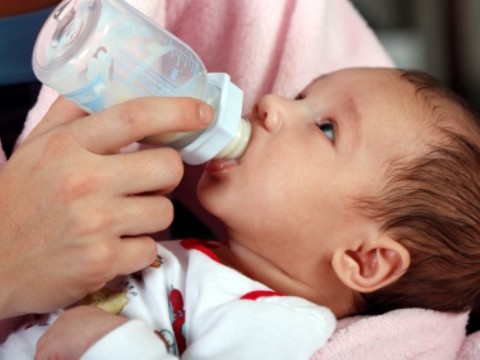At each pediatrician’s visit, your doctor will check your baby’s weight to make sure she is getting enough to eat. If you have any concerns over your baby’s growth, keep a daily journal of all feedings, how many wet diapers and how many bowel movements your baby makes each day. This information can help your doctor diagnose and correct any problems.
Other signs your newborn is getting enough to eat include:

- You can hear your baby’s rhythm of sucking, pausing and sucking during breastfeeding sessions. If you listen carefully, you can hear your baby swallow your breast milk.
- Your newborn sleeps for a few hours after nursing.
- Your breasts, which felt full before breastfeeding, are softer and emptier afterward.
- Your baby typically breastfeeds for at least ten minutes.
- Your baby is alert and active when he/she is awake.
- Your newborn doesn’t appear hungry after feeding, rather, he/she seems satisfied.
- Your infant has a healthy skin tone.
Check the Diaper
If you are breastfeeding, the diaper provides great insight.
- After three or four days, your newborn is getting enough breast milk if she has six to eight wet diapers a day.
- A well-fed newborn will stop passing meconium (thick, greenish-black stools) after four or five days. Stools will turn to mustard yellow, possibly green and seedy.
- In the first month of life, a newborn should pass at least three bowel movements each day.
When to Visit the Doctor
Your newborn may be underfed and not getting enough to eat if she isn’t gaining weight; she has fewer than six to eight wet diapers each day; she has little interest in feedings; and/or she has a change in the frequency of bowel movements. Contact your pediatrician if you notice your baby is:
- More sleepy than normal
- Passing urine that is deep yellow in color (a sign of dehydration)
- Constipated (stools are hard and dark)
- Exhibiting signs of jaundice (abnormally yellow skin tone)